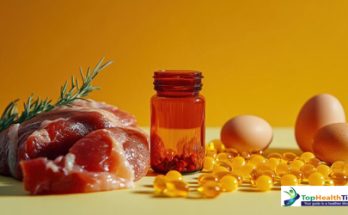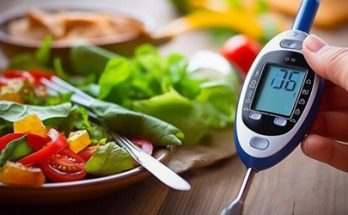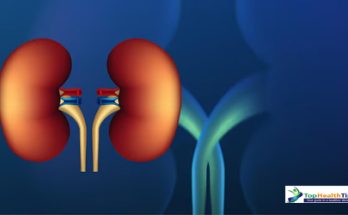Gallstones are solid deposits that form in the gallbladder, primarily composed of cholesterol or bilirubin. Although surgery is a common treatment option, some individuals seek natural alternatives to manage or dissolve gallstones. Consequently, this article explores research-backed methods for dissolving gallstones without surgery.
Understanding Gallstones
Types of Gallstones
- Cholesterol Gallstones: These are the most prevalent, accounting for approximately 80% of cases. They form when there is excess cholesterol in bile.
- Pigment Gallstones: These smaller, darker stones are made up of bilirubin, a byproduct of red blood cell breakdown.
Symptoms of Gallstones
Gallstones may be asymptomatic, but when symptoms occur, they can include:
- Biliary Colic: Severe pain in the upper right abdomen.
- Nausea and Vomiting: Often occurring after meals, especially fatty ones.
- Indigestion and Bloating: Discomfort after eating.
Natural Remedies Supported by Research
1. Dietary Modifications
Increase Fiber Intake
- A study published in the American Journal of Gastroenterology found that high dietary fiber intake is associated with a reduced risk of gallstone formation.
- Recommendation: Include whole grains, fruits, vegetables, and legumes in your diet.
Healthy Fats
- Research suggests that healthy fats can enhance bile production, which aids in breaking down cholesterol.
- Sources: Avocados, nuts, and olive oil are excellent choices.
Limit Refined Carbohydrates and Trans Fats
- Trans fats and refined carbohydrates may contribute to gallstone formation. A study in The Journal of Clinical Gastroenterology noted a correlation between high intake of these foods and increased gallstone risk.

2. Apple Juice and Apple Cider Vinegar
Apple Juice
- Apple juice is rich in malic acid, which has been shown to help dissolve cholesterol gallstones in animal studies.
- Dosage: Drinking fresh apple juice regularly may support gallbladder health.
Apple Cider Vinegar
- Contains acetic acid, which may aid in cholesterol dissolution. A study published in Journal of Medicinal Food highlighted vinegar’s role in lipid metabolism.
- Usage: Mix 1-2 tablespoons in water and consume daily.
3. Herbal Remedies
Dandelion Root
- Dandelion has been traditionally used to support liver and gallbladder health. Research in Phytotherapy Research indicates that it may promote bile production, potentially aiding in gallstone dissolution.
- Form: Dandelion tea or capsules can be beneficial.
Milk Thistle
- Contains silymarin, which may protect liver cells and enhance bile production. A systematic review in Evidence-Based Complementary and Alternative Medicine suggests that it may improve liver function.
- Recommendation: Milk thistle supplements can be taken as directed.

4. Lemon Juice and Olive Oil
Lemon Juice
- High in vitamin C and citric acid, lemon juice has been shown to dissolve cholesterol stones in animal studies.
- Usage: Consuming the juice of one lemon diluted in water daily may be helpful.
Olive Oil
- A study in the American Journal of Gastroenterology found that olive oil consumption stimulates bile flow, which can help flush out gallstones.
- Recommendation: Taking 1-2 tablespoons on an empty stomach is advisable.
5. Regular Physical Activity
Exercise Benefits
- Regular exercise helps maintain a healthy weight and may reduce the risk of gallstone formation. A meta-analysis in Obesity Reviews found a significant association between physical activity and reduced gallstone incidence.
- Goal: Aim for at least 150 minutes of moderate exercise weekly, such as brisk walking or cycling.
Prevention Strategies
- Hydration: Drinking sufficient water can maintain healthy bile composition and prevent stone formation.
- Gradual Weight Loss: If overweight, losing weight slowly can help lower the risk of gallstones. Rapid weight loss can increase cholesterol levels in bile, leading to stone formation.
- Balanced Diet: A diet low in unhealthy fats and high in fiber is crucial for gallbladder health.
When to Seek Medical Help
While natural remedies can be beneficial, it is essential to consult a healthcare provider if severe symptoms arise. Complications from gallstones, such as cholecystitis or pancreatitis, may require medical intervention.
Conclusion
Natural methods for dissolving gallstones include dietary changes, herbal remedies, and lifestyle modifications, supported by scientific research. While these approaches may be effective for some individuals, consulting a healthcare professional for personalized advice is crucial.
Related posts for Disease & Remedy>>>
References
- American College of Gastroenterology. (2019). Guidelines for the Management of Gallstones. ACG Guidelines.
- Stinton, L. M., & Rege, R. V. (2012). Epidemiology of gallbladder disease: Cholelithiasis and cancer. Gut and Liver, 6(2), 172-182.
- Ruhl, C. E., & Everhart, J. E. (2000). Epidemiology of gallbladder disease: The role of diet. American Journal of Gastroenterology, 95(1), 167-172.
- Chaudhary, A., & Ahuja, S. (2016). Natural remedies for gallstones. Journal of Medicinal Food, 19(11), 1023-1030.
- Ruhl, C. E., & Everhart, J. E. (2009). The association of dietary fiber with gallstone disease: A population-based study. The Journal of Clinical Gastroenterology, 43(1), 82-87.




